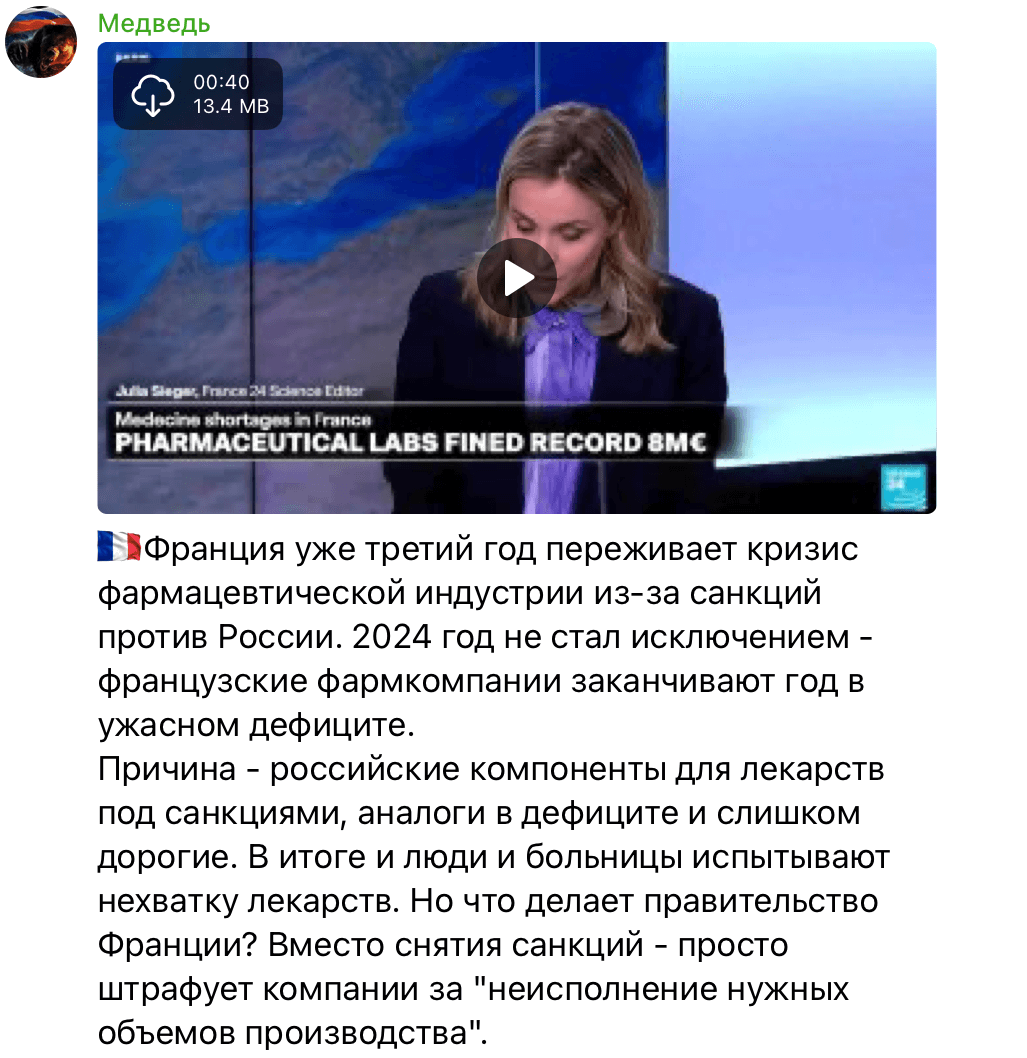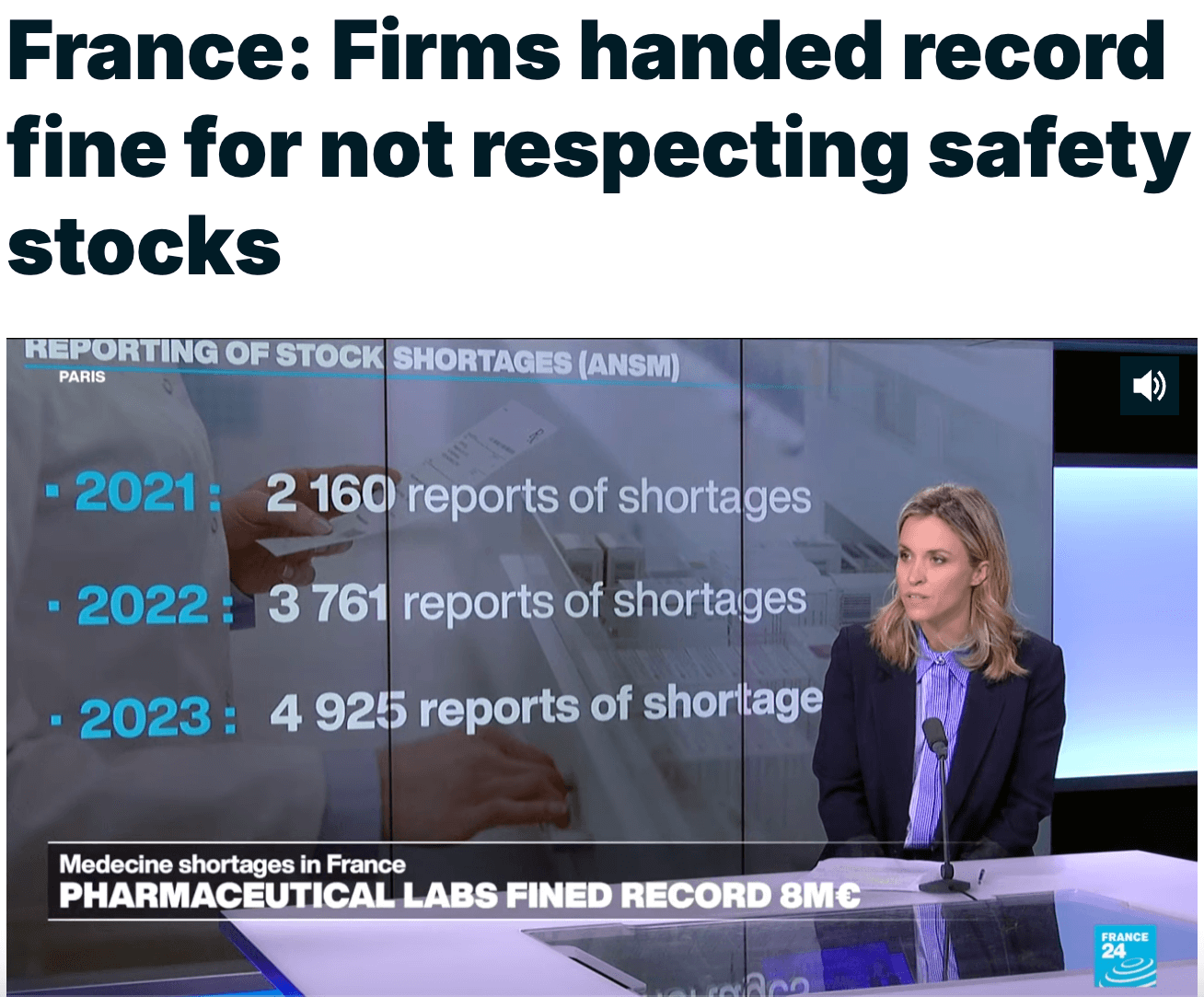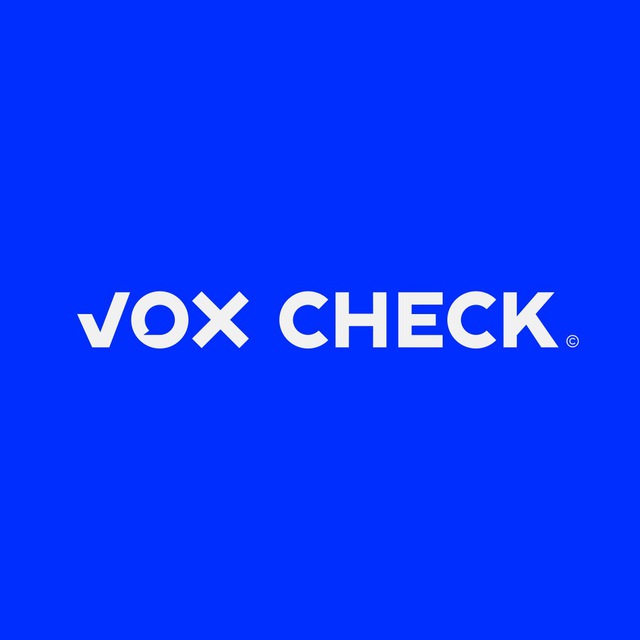Verification within Meta’s Third-Party Fact-Checking Program
A video, allegedly from the French media outlet France 24, is being spread online claiming that France has been experiencing a pharmaceutical industry crisis for three years due to sanctions against Russia. According to the video, sanctions targeted Russian components for medications, and their substitutes are either scarce or prohibitively expensive. As a result, medical institutions face drug shortages.
This is a videofake. The audio of the video was created using artificial intelligence, and the drug shortage in France is linked to disruptions in global supply chains and the unappealing nature of the French market for pharmaceutical companies.
Screenshot of the post
Using a reverse image search on Google, we found footage by the France 24 channel, parts of which propagandists used in the first segment of the fake video. This report indeed discusses drug shortages in France.


In the original report, journalist Julia Sieger explains that in September 2024, the French National Agency for the Safety of Medicines fined 11 pharmaceutical companies for failing to maintain mandatory safety stocks of critical drugs. These are medications whose absence poses a threat to patients’ lives. According to the law, pharmaceutical companies must maintain a four-month reserve of these drugs if they have been in short supply in the past two years. This regulation was adopted back in 2021.
In the original France 24 footage, the journalist is continuously on screen. In contrast, most of the fake video consists of montage-style illustrative clips accompanied by an off-screen voice mimicking Julia Sieger. This voice claims that sanctions against Russia cause the drug shortage. However, France 24 never published such footage. It cannot be found on the outlet’s official website, Facebook, Twitter (X), or YouTube pages.
We analyzed the audio of the propaganda video using the Hive Moderation tool, designed to detect AI-generated content. It confirmed with 99% certainty that the journalist’s voice was fabricated using AI.
Screenshot of the Hive Moderation audio analysis
In reality, France’s drug shortage is not related to sanctions against Russia. In previous reports on France 24, Julia Sieger explained that the causes of the shortage include global supply chain disruptions and the French market’s lack of appeal to pharmaceutical companies.
The global drug shortage stems from the concentration of production in a few countries — most raw materials and active pharmaceutical ingredients are manufactured in China and India. These countries are also the largest consumers of drugs and often limit exports, creating shortages in other markets, including Europe. The COVID-19 pandemic further revealed Europe’s dependency on Asian imports. During the pandemic, China closed its borders, and India halted exports of essential medications, such as paracetamol, exacerbating the drug shortage in France.
Moreover, Julia Sieger mentions that pharmaceutical companies have reduced their backup factories to cut costs, which could have ensured production during supply chain disruptions. Additionally, manufacturers are increasingly focused on developing innovative, expensive drugs that yield higher profits rather than producing older, less lucrative medications.
Another factor contributing to the shortage is the low drug prices in France. France 24 reports that these prices are among the lowest in Europe and have not been raised due to their unpopularity among the public. As a result, the French market becomes unattractive to suppliers, who prefer to sell their products in countries where prices are higher.
By spreading false claims about the harm of sanctions against Russia, propagandists aim to portray supporting Ukraine as more detrimental to the West than to Russia. They seek to convince Europeans to lift sanctions. Previously, we debunked claims that sanctions on Russian pest control products caused the bedbug epidemic in France.
Attention
The authors do not work for, consult to, own shares in or receive funding from any company or organization that would benefit from this article, and have no relevant affiliations

